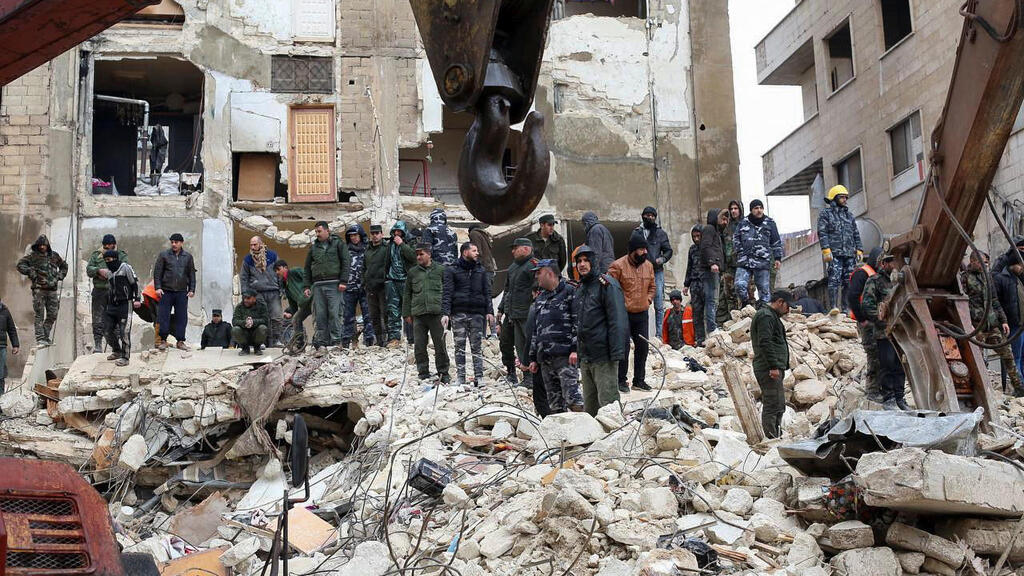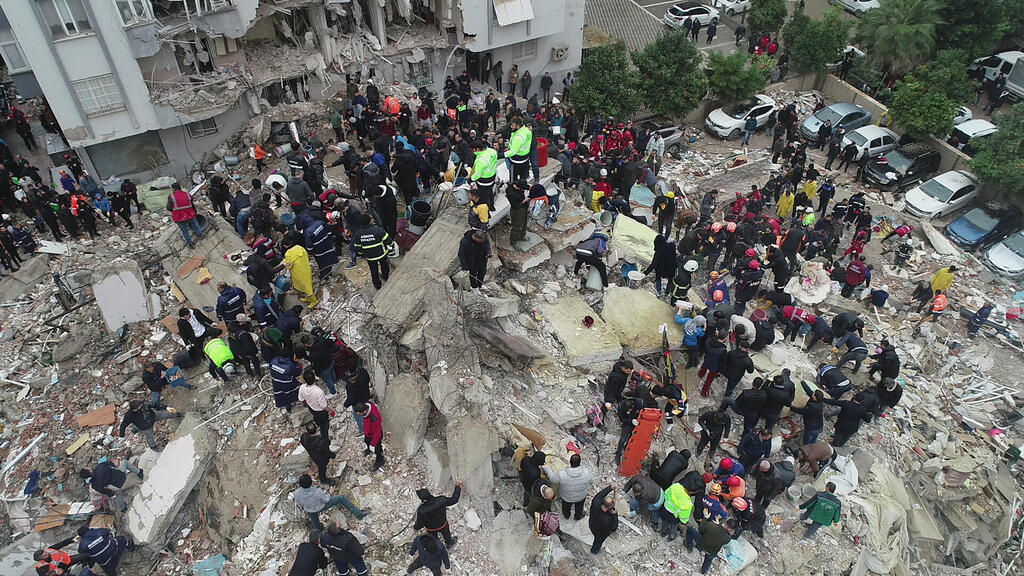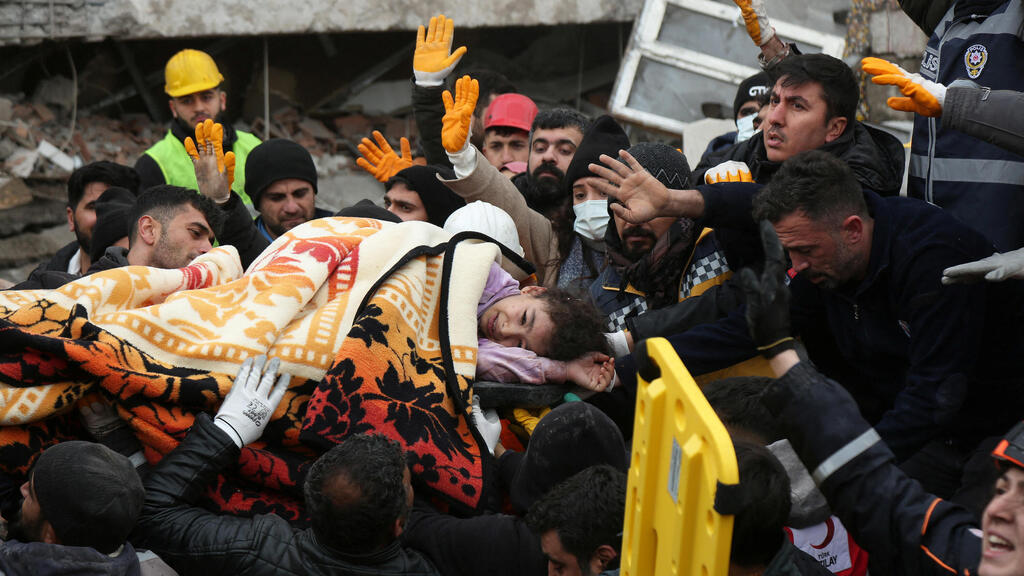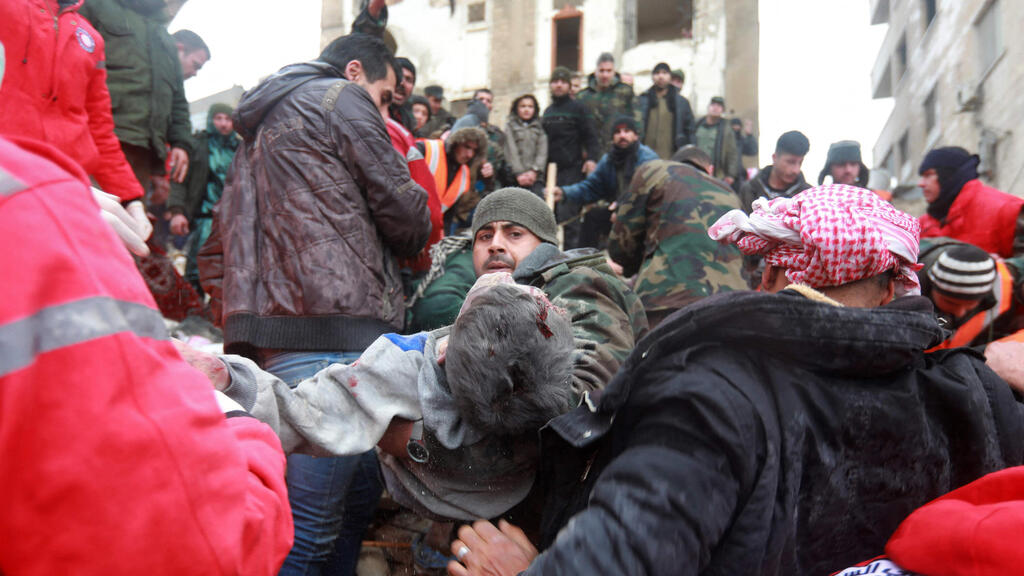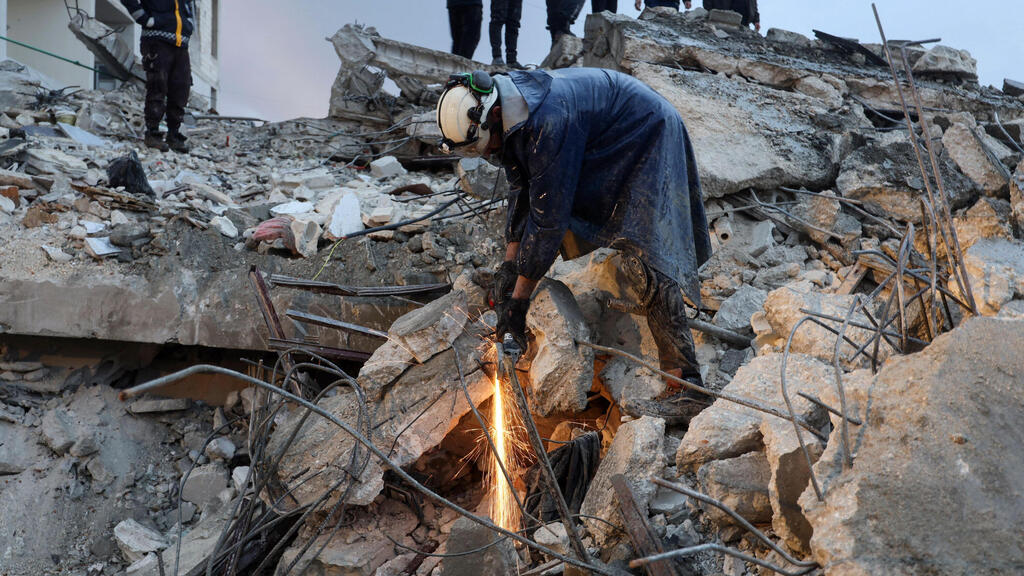The death toll after the two major earthquakes that shook parts of Turkey and Syria on Monday, has surpassed 2,000.
A 7.7 magnitude earthquake rocked Turkey and Syria on Monday, nine hours after another 7.8 magnitude tremor toppled hundreds of buildings and killed hundreds of people in the biggest tectonic shift in the area in over 80 years.
The second quake occurred at around 12:29 p.m. and was the strongest aftershock felt after the initial tremor overnight, also being felt in Israel. Another strong 6.7 magnitude aftershock was registered in the country and another seven tremors were felt reaching above 5 magnitudes.
Authorities now worry that the second quake could lead to more injuries and deaths. The official number of people killed in both Turkey and Syria at the time of the report stands at 1,785.
Turkey so far reported 1,121 people killed with 7,634 injured. In Syria reports so far say 771 died and over 1,000 were injured. Orhan Tatar, head of the AFAD department handling earthquake risks, said in a press briefing that 2,834 buildings were destroyed in the quake.
Turkish President Recep Tayyip Erdogan said prior to the second tremor that the final casualty toll still couldn’t be ascertained, with the UN’s World Health Organization (WHO) stating it was concerned about more remote areas in Turkey where reports of the damage, injuries, and deaths have yet to be received.
The recent earthquake was the strongest in magnitude measure in the Middle East and Turkey since 1939, when a similar quake measuring 7.8 hit the area resulting in the death of 30,000 people.
The first earthquake was also felt outside of the region, including in Israel where buildings shook. In Lebanon Cyprus and Egypt, tumors were also reported. Itay’s government on Monday issued a tsunami warning, which it later rescinded
The second strong tremor was felt even farther away from Turkey, including in Syria, Iraq, and Israel. Residents in central Israel escaped from their homes into the streets or into local shelters. A residential building in Bnei Brak, one of the tallest in Israel, was evacuated following the quake.
Yana, who lives in a 14th-floor apartment in Be’er Yaakov, told Ynet that she took her baby and stayed in her home’s reinforced room. “The entire house shook, I couldn’t walk straight. It was scary.”
Daniel, working on the 19th floor of a building in Tel Aviv, said that “everyone left the building, and we were instructed about what we needed to do. We felt the tremor strongly in the upper floors, we were all scared.”
Two more aftershocks were felt in Turkey following the second tremor measuring at 5.7 and 5.8 and were not felt in Israel. Experts estimate that aftershocks will continue to rock the region in the coming days.
Following the quakes, oil refineries in Syria and the Adana airport in Turkey were instructed to halt operations for fear of further damage.
Search and rescue efforts in the region continue with forces working in harsh conditions. Some people were found trapped under the rubble, and many more were feared dead beneath the ruins.
Turkey is a country well equipped and versed in earthquakes, however, last night's termor was atypically strong. Sinan Shahan, living in Gaziantep close to where the quake originated, said he was in Istanbul in 1999 when another strong tremor in the area left 18,000 dead.
“This quake is stronger than the previous one,” he said. “We woke up from the tremors with no electricity. We lay down and waited for things to subside. Our house was filled with broken glass. We used the flashlight in our phone to find our way outside. Everyone ran wherever they could.”
Dozens of countries have already offered aid to Turkey, including Israel. Prime Minister Benjamin Netanyahu announced that an Israeli search and rescue mission will assist Turkish efforts.
Israel claimed that Syrian President Bashar al-Assad reached out to a third-party state official, likely to be Russia, to ask Israel for aid following the deadly earthquake. Netanyahu said that should the need arise Israel will be preparing to take in injured Syrians for treatment in Israeli hospitals.
But a Syrian official denied to the Al Watan newspaper that there was any such request relayed on behalf of the Damascus regime.
The state of the 4 million Syrian refugees who live in areas in northwestern Syria that are controlled by rebels is unclear and causes great concern. The refugees live mostly in temporary shacks and tents and are far from the reach of rescuers.
Rescue efforts were launched in the rebel-controlled village of Janderis in Syria after one of the buildings collapsed there. “There were 12 families there, no one came out, not a single one,” A Syrian youth said.
Helping the rescue missions in Syria are the White Helmets – a humanitarian aid group of volunteers who were most notable during the civil war, offering medical aid to civilians under Russian bombardment.
“We’re in a race against time to save those still trapped,” Raad Faras, a White Helmets volunteer, said. “Even if our teams are exhausted, we don’t have time to rest.”
Faras said that bombings by Syrian and Russian forces had made the buildings in the area brittle, causing them to come down more easily when the quake hit.


